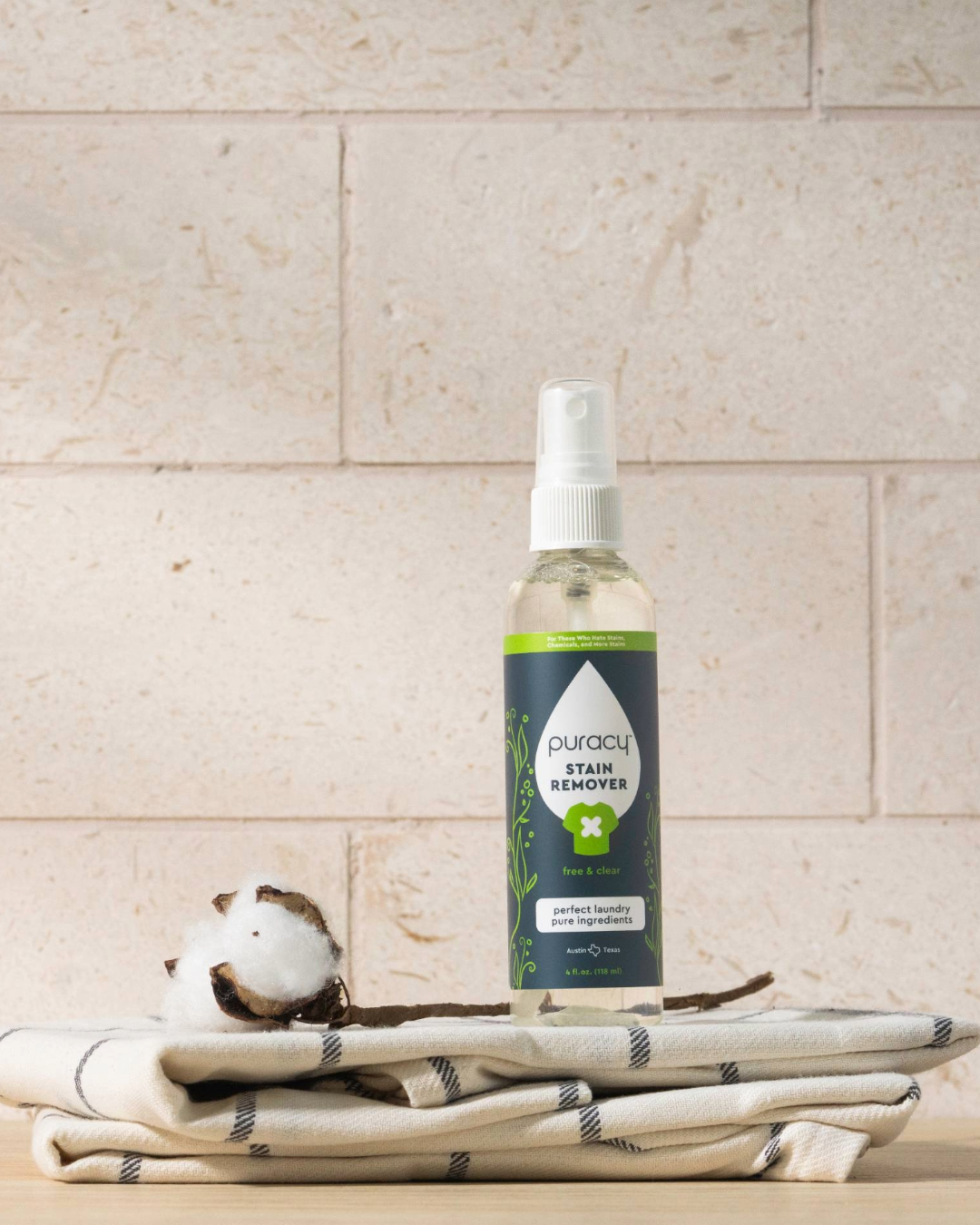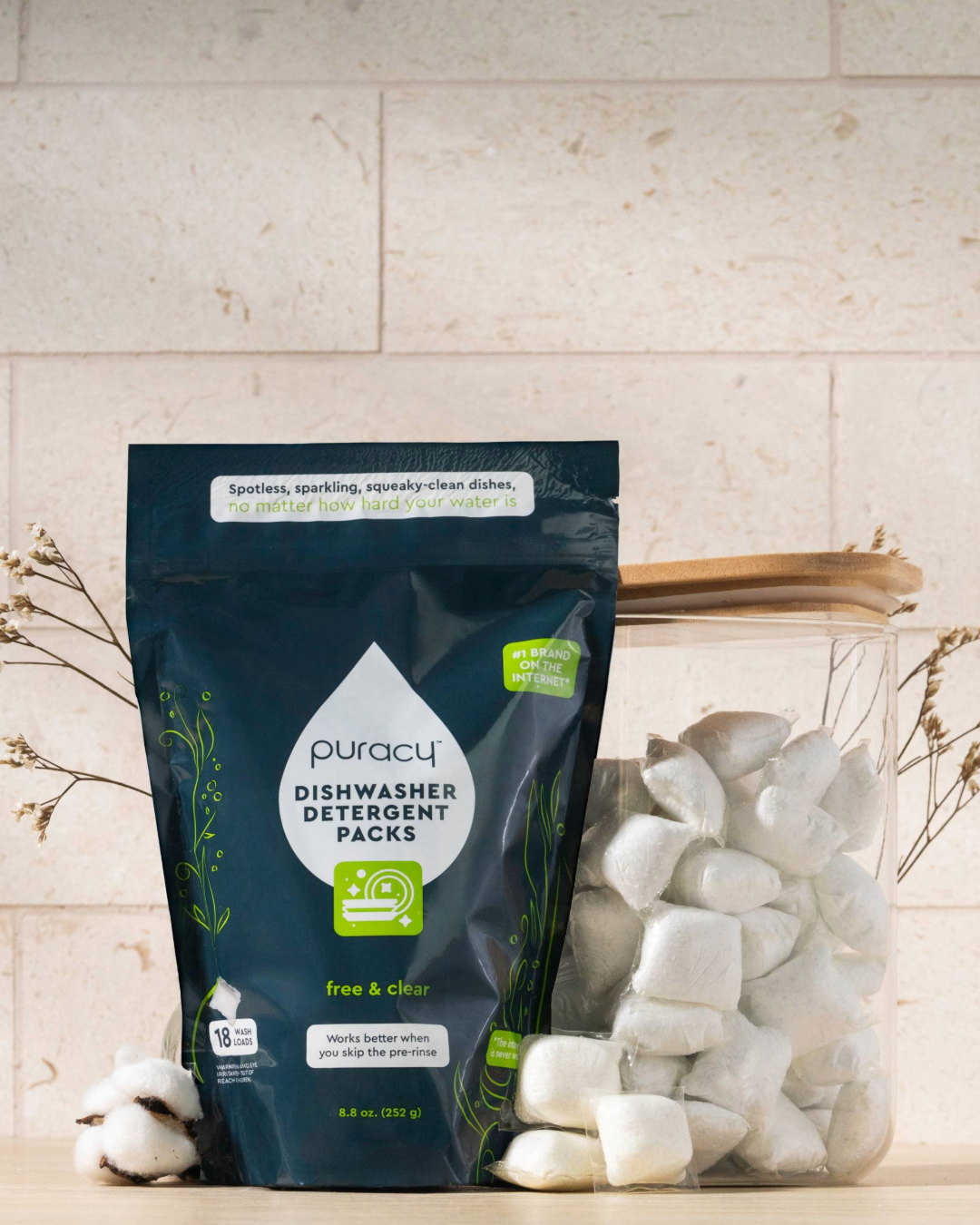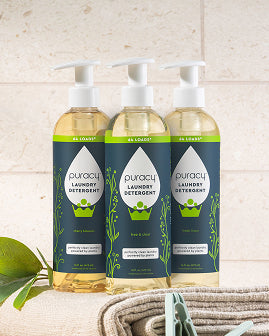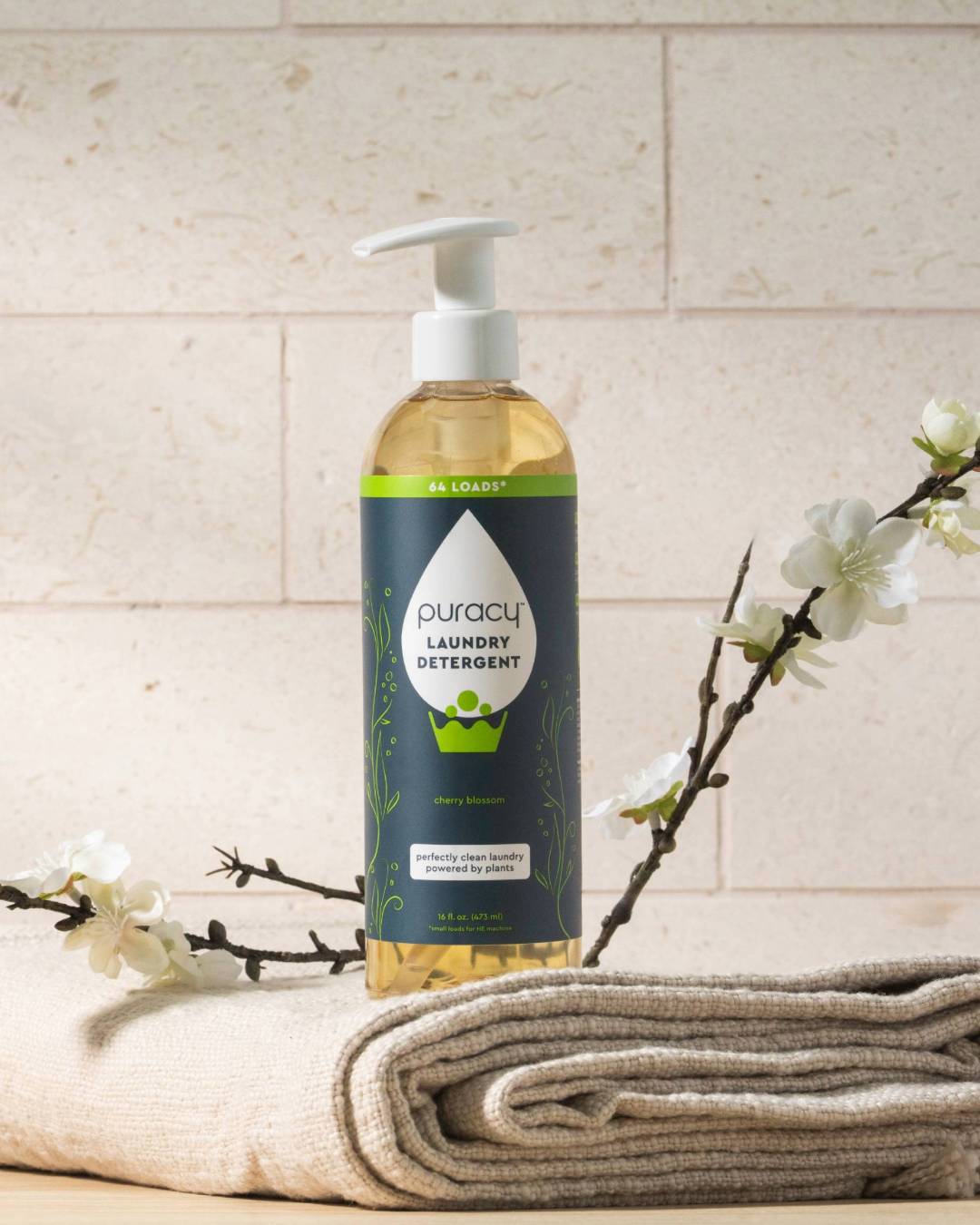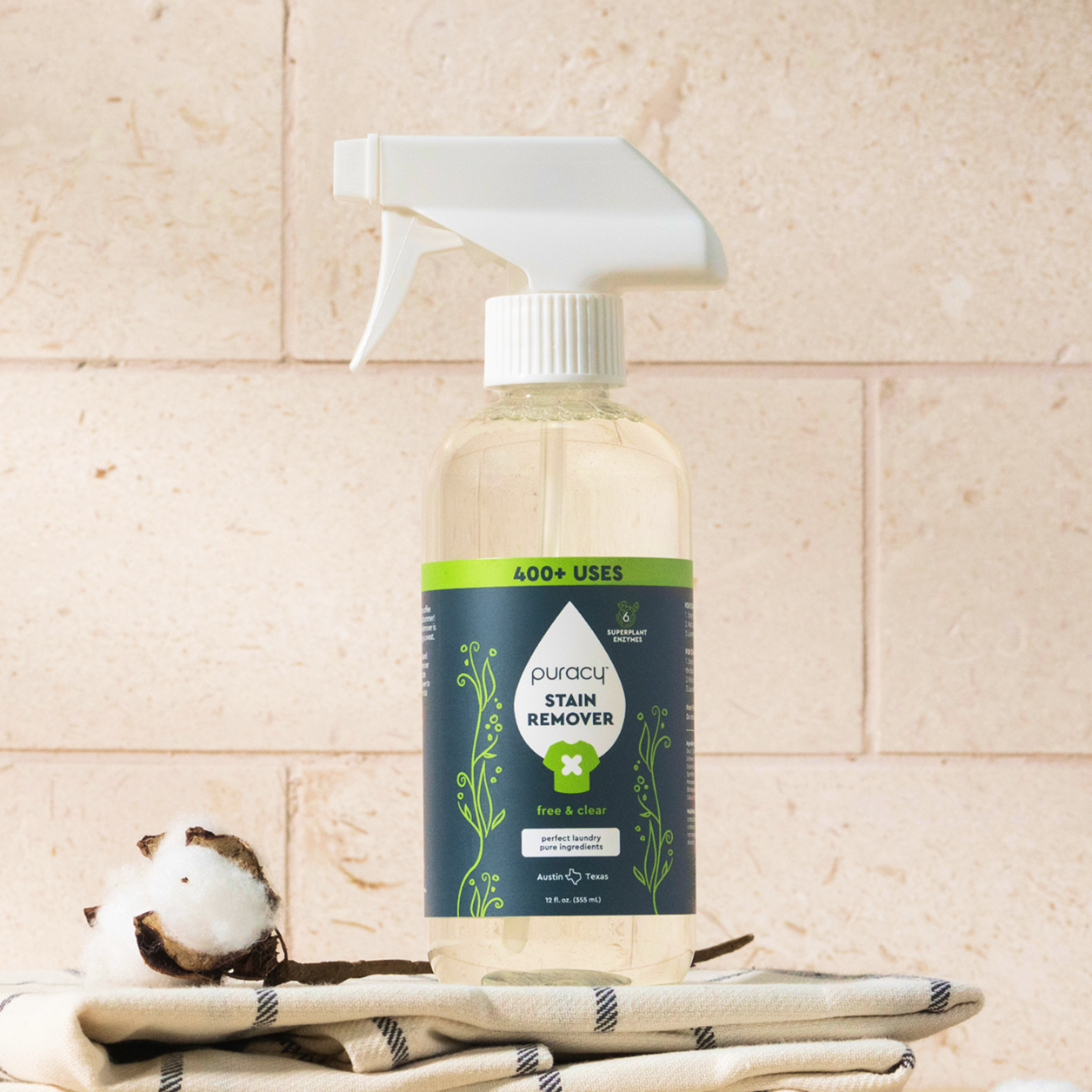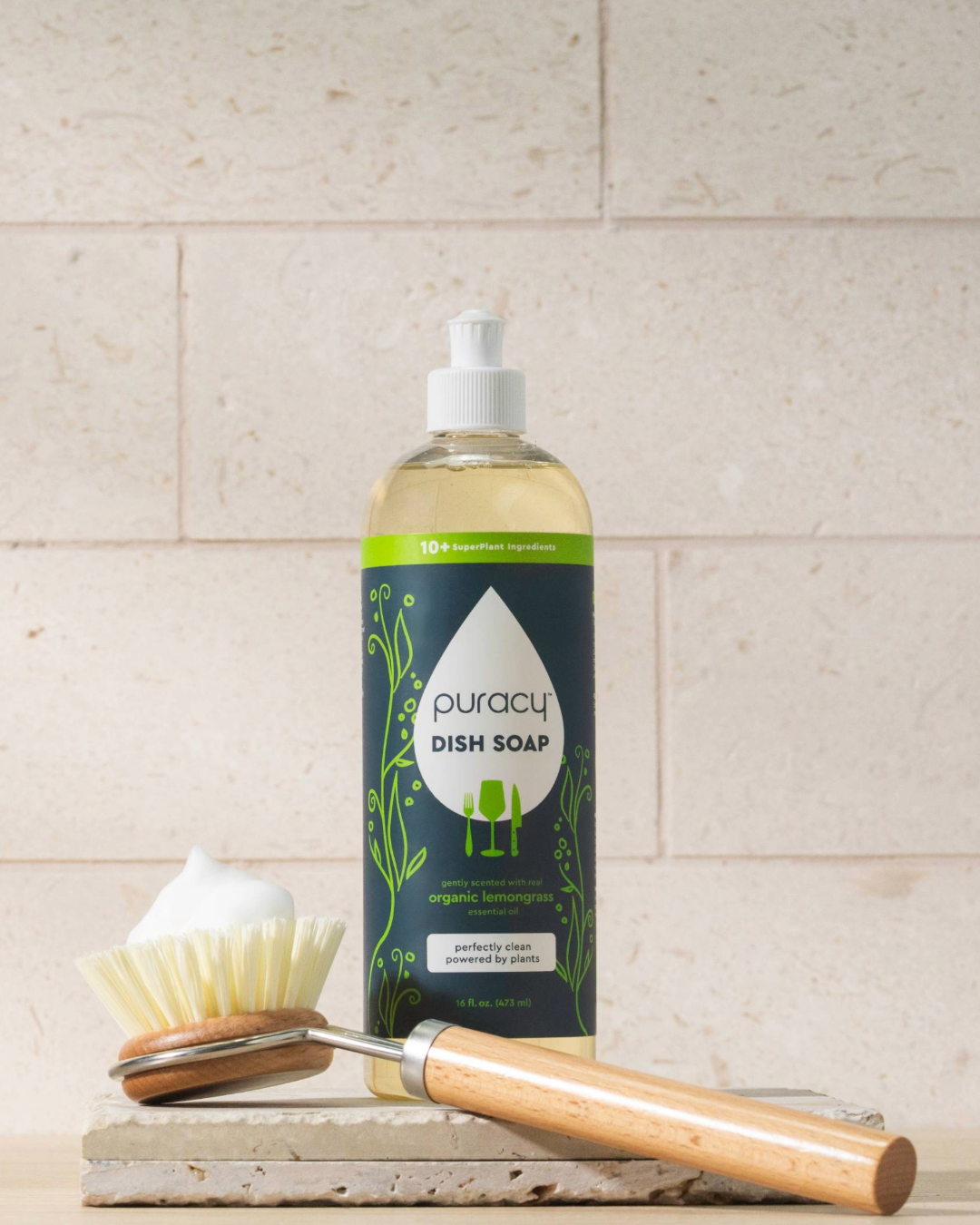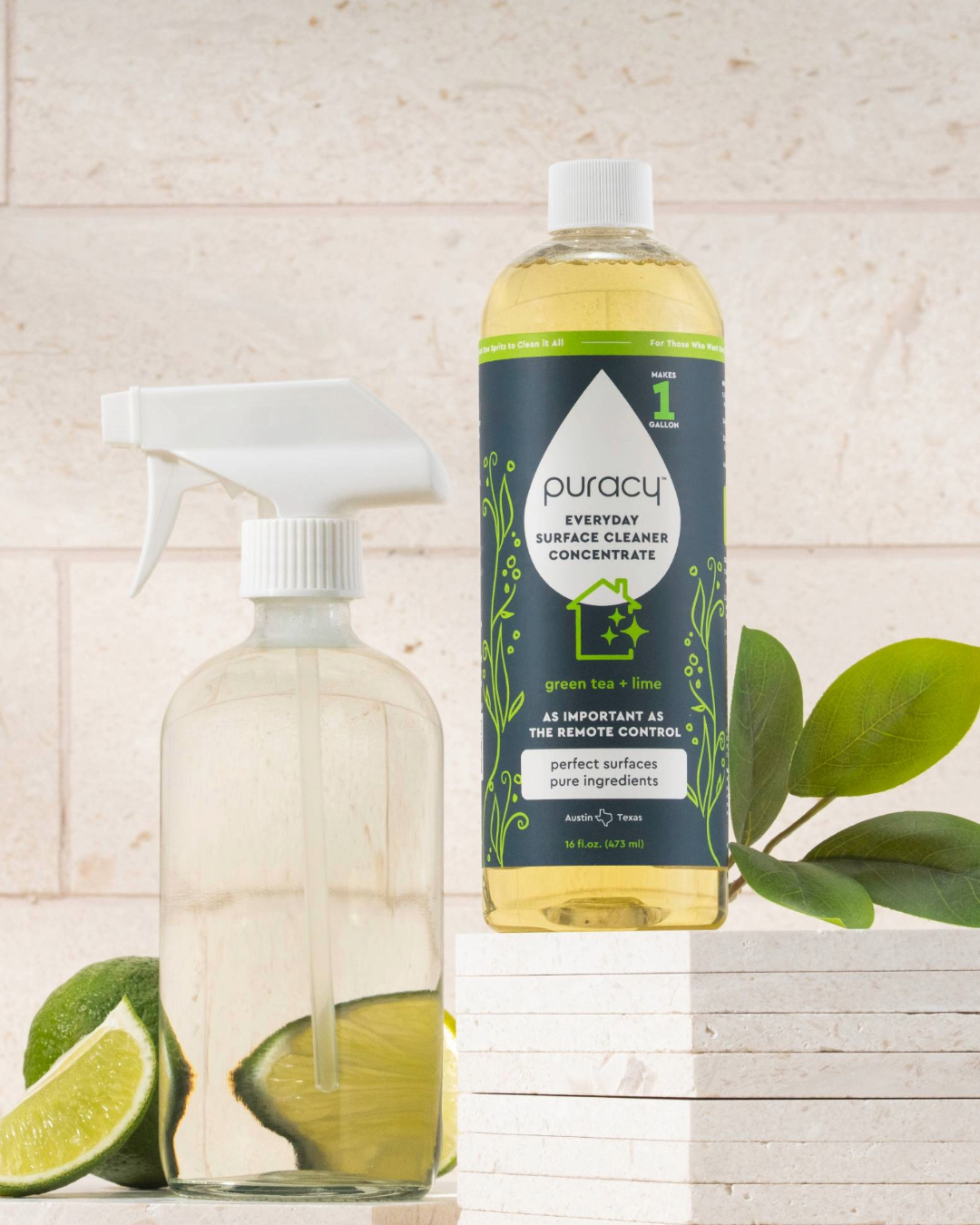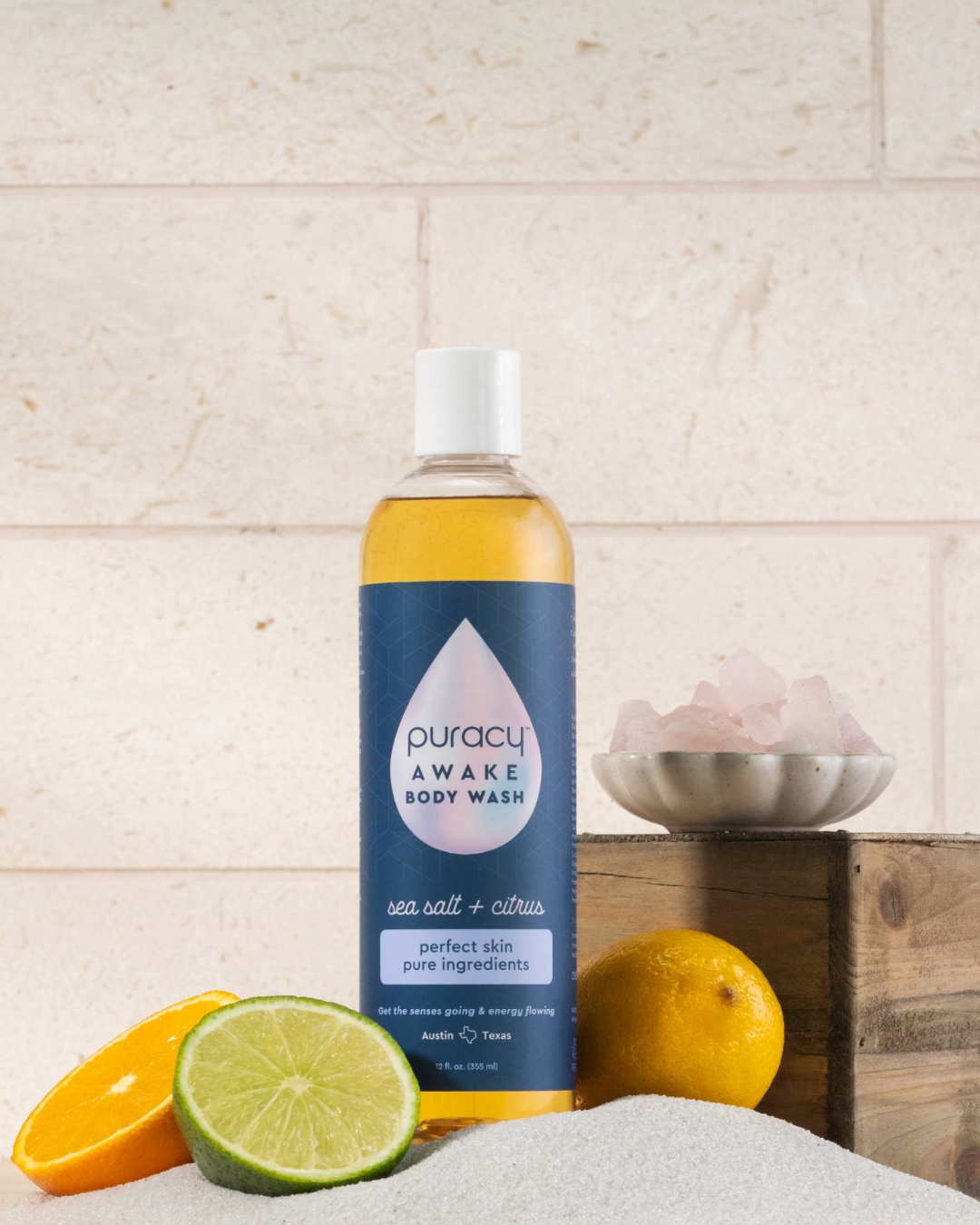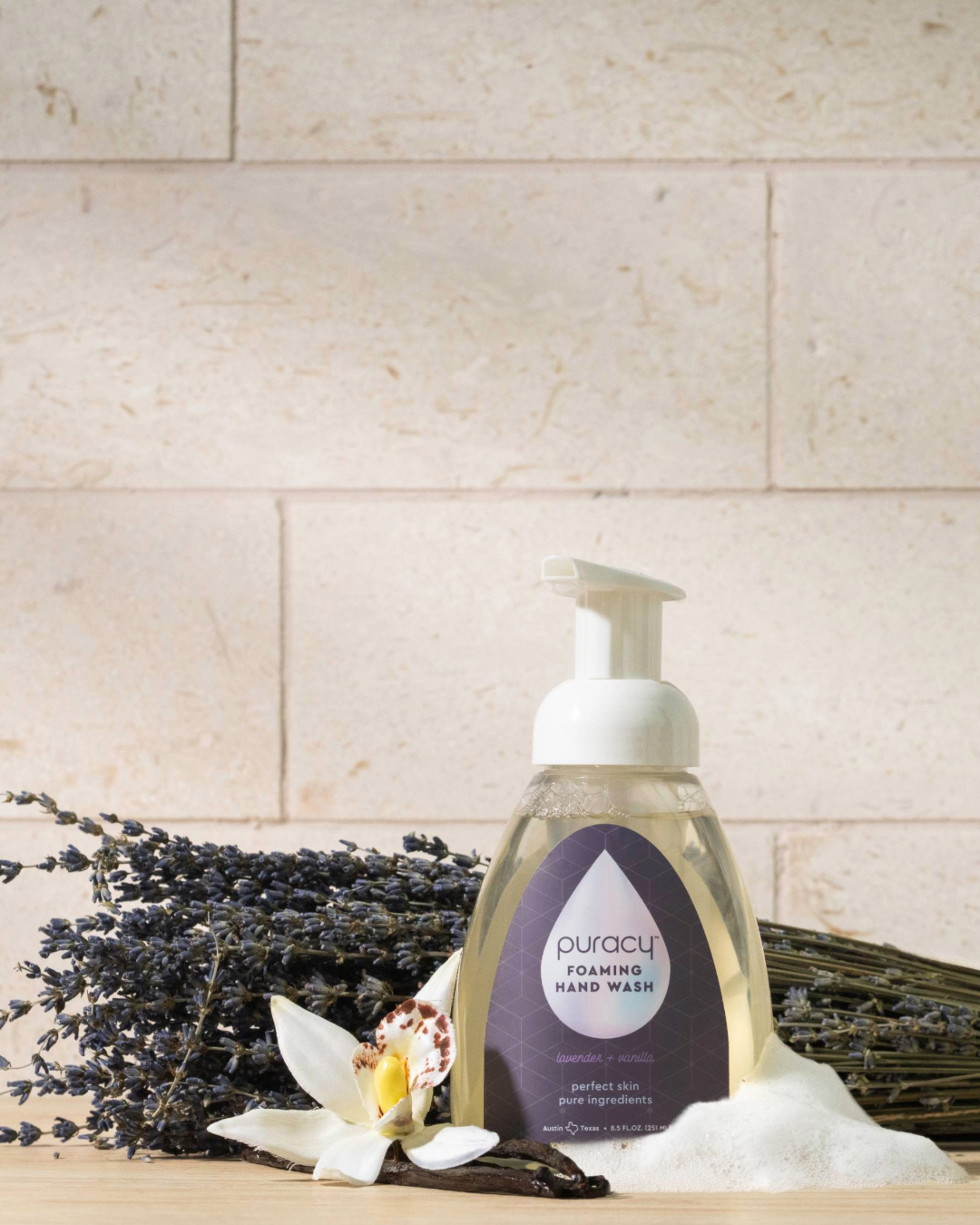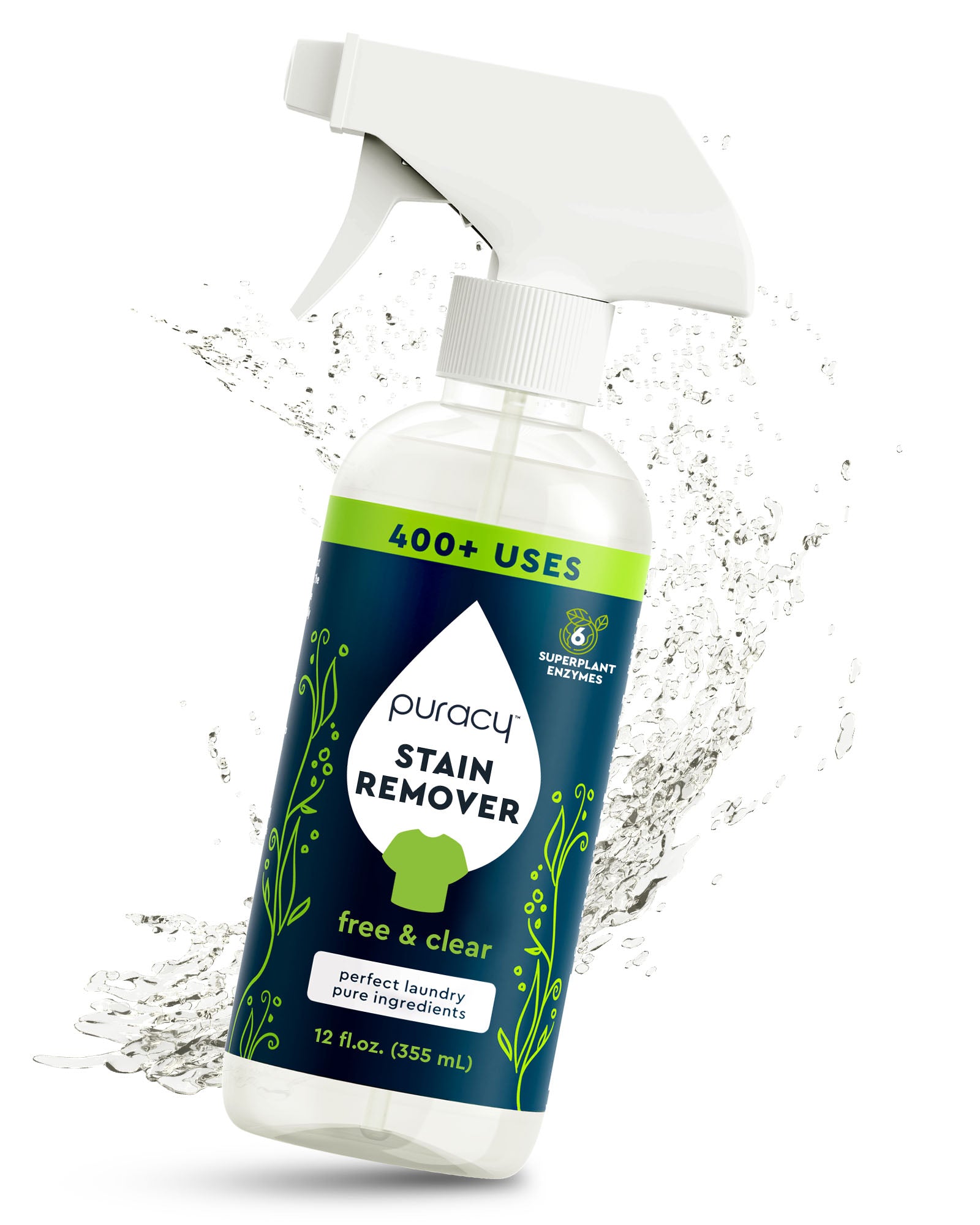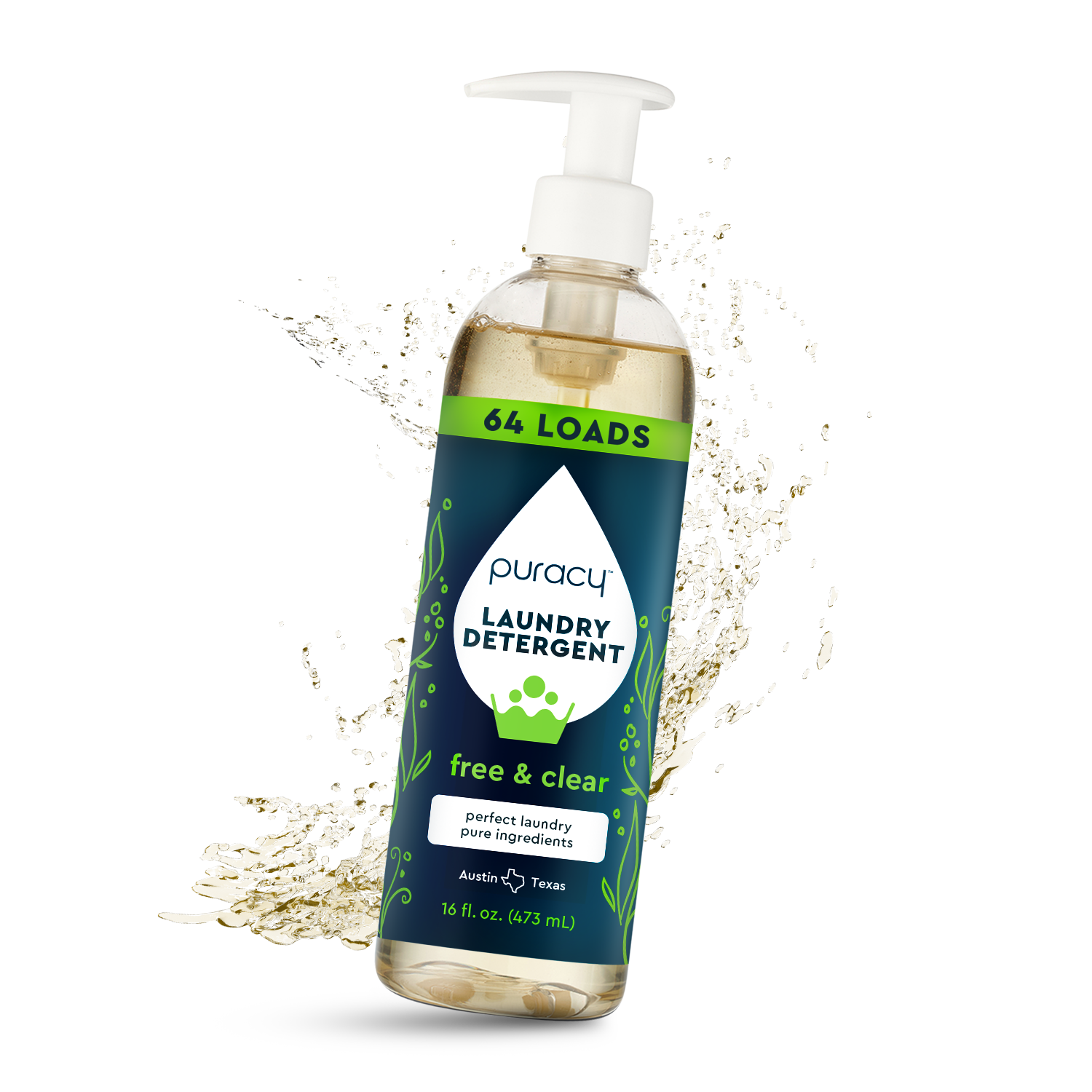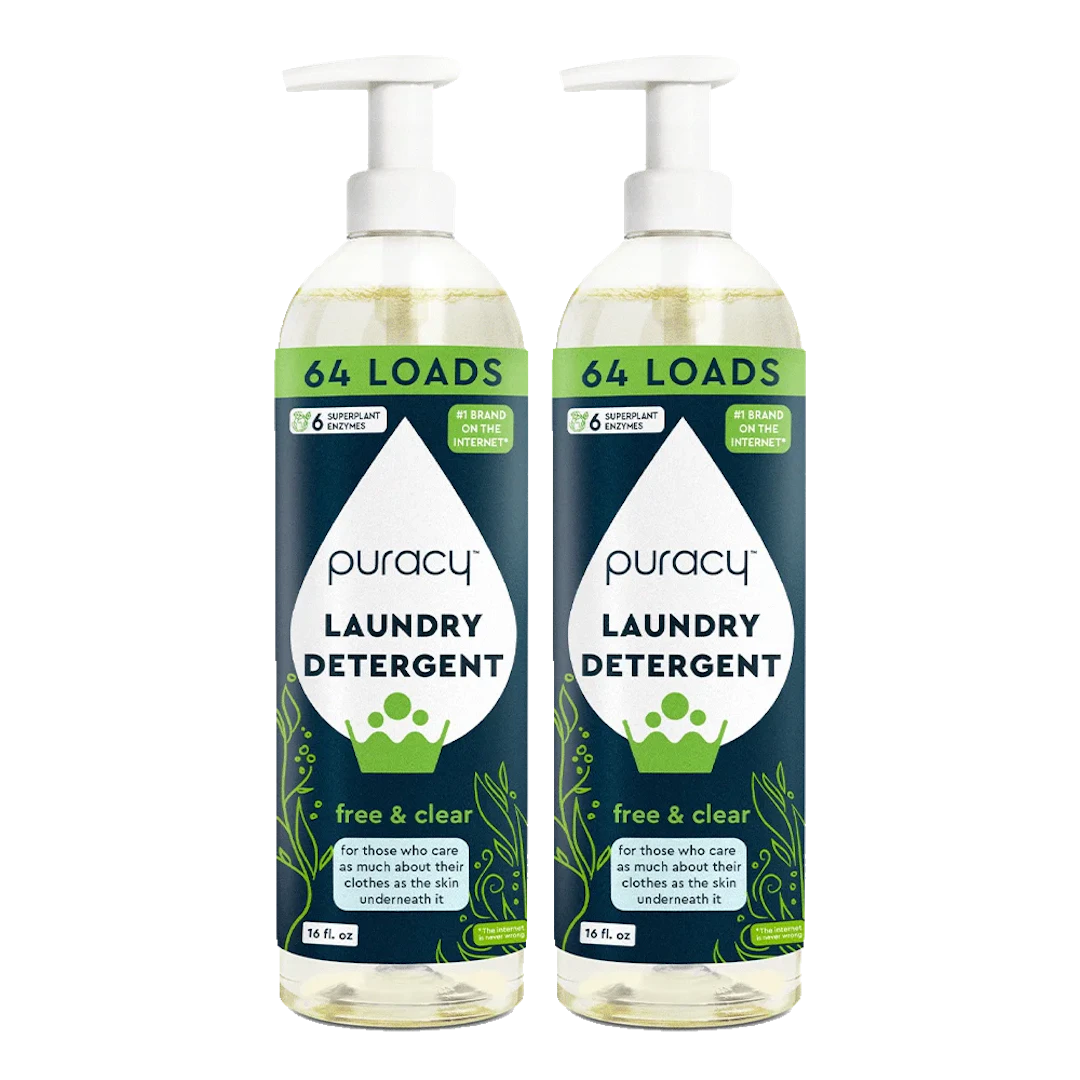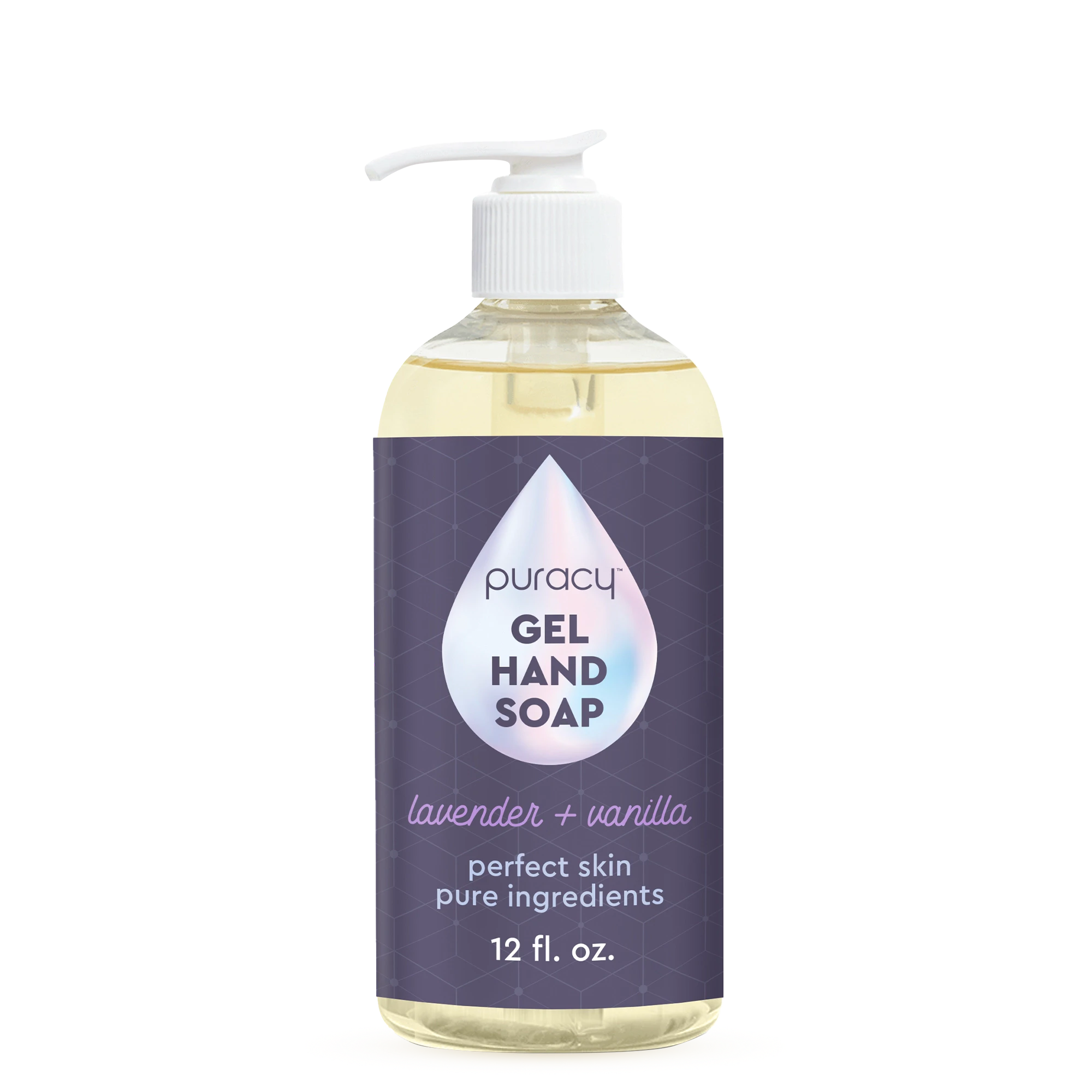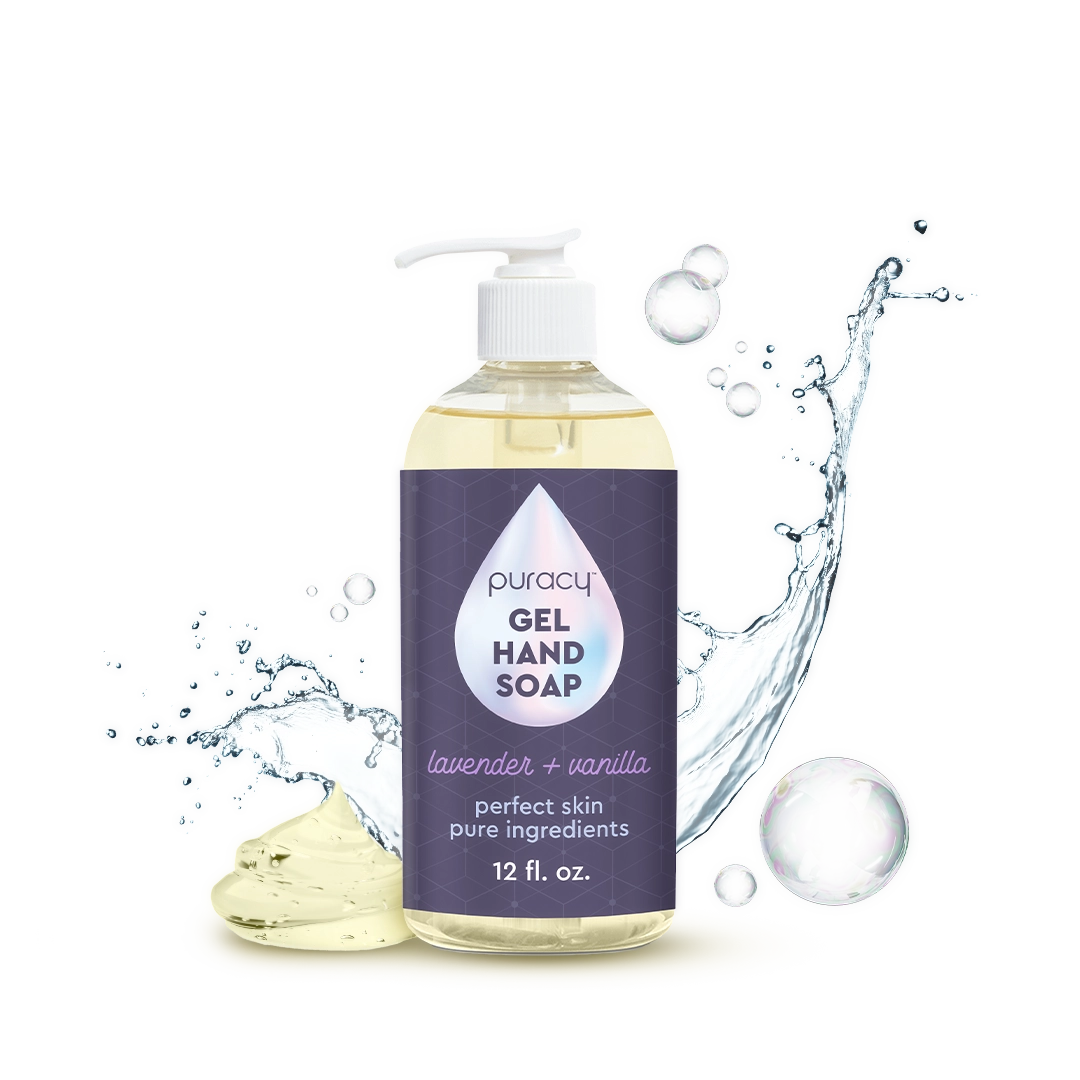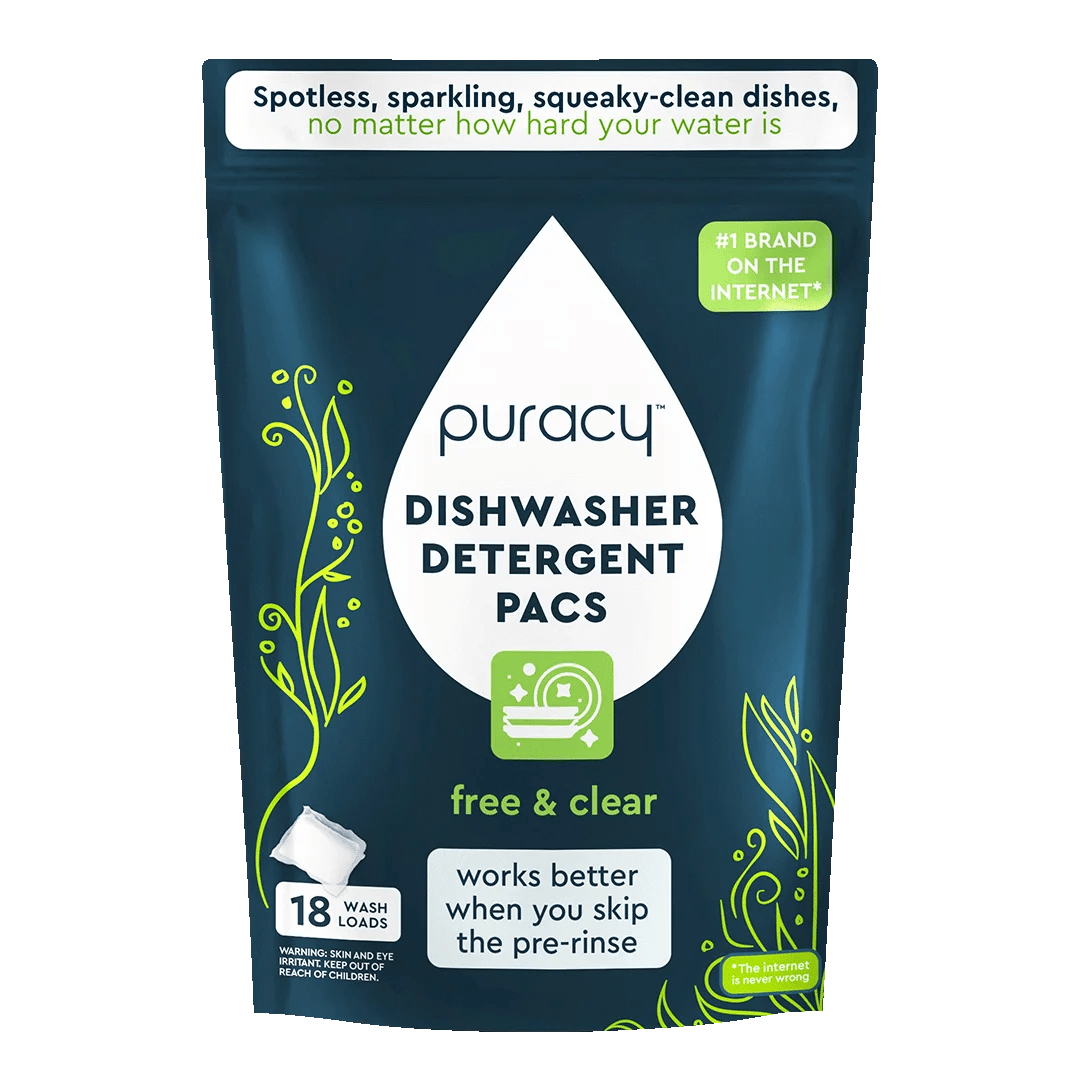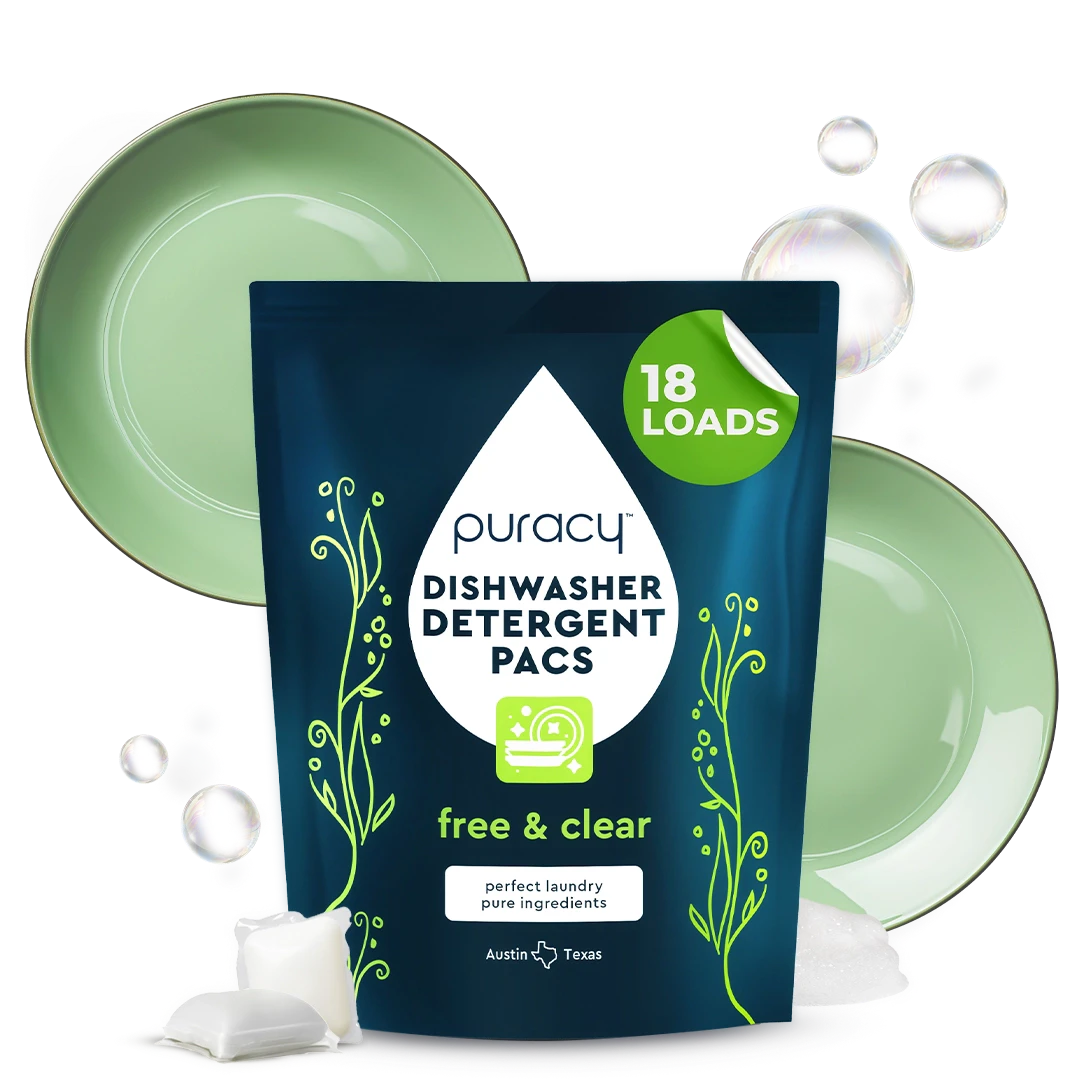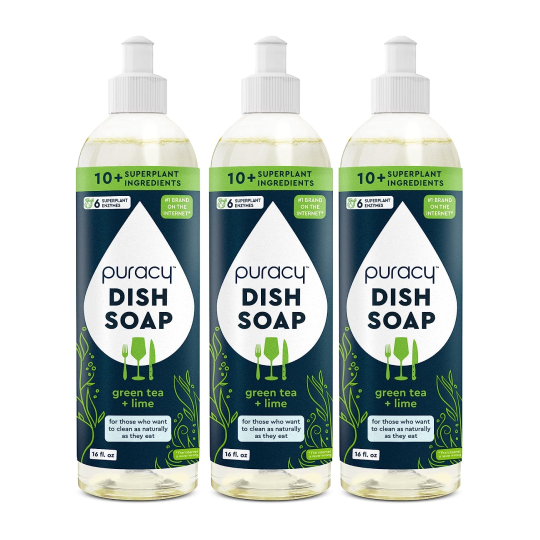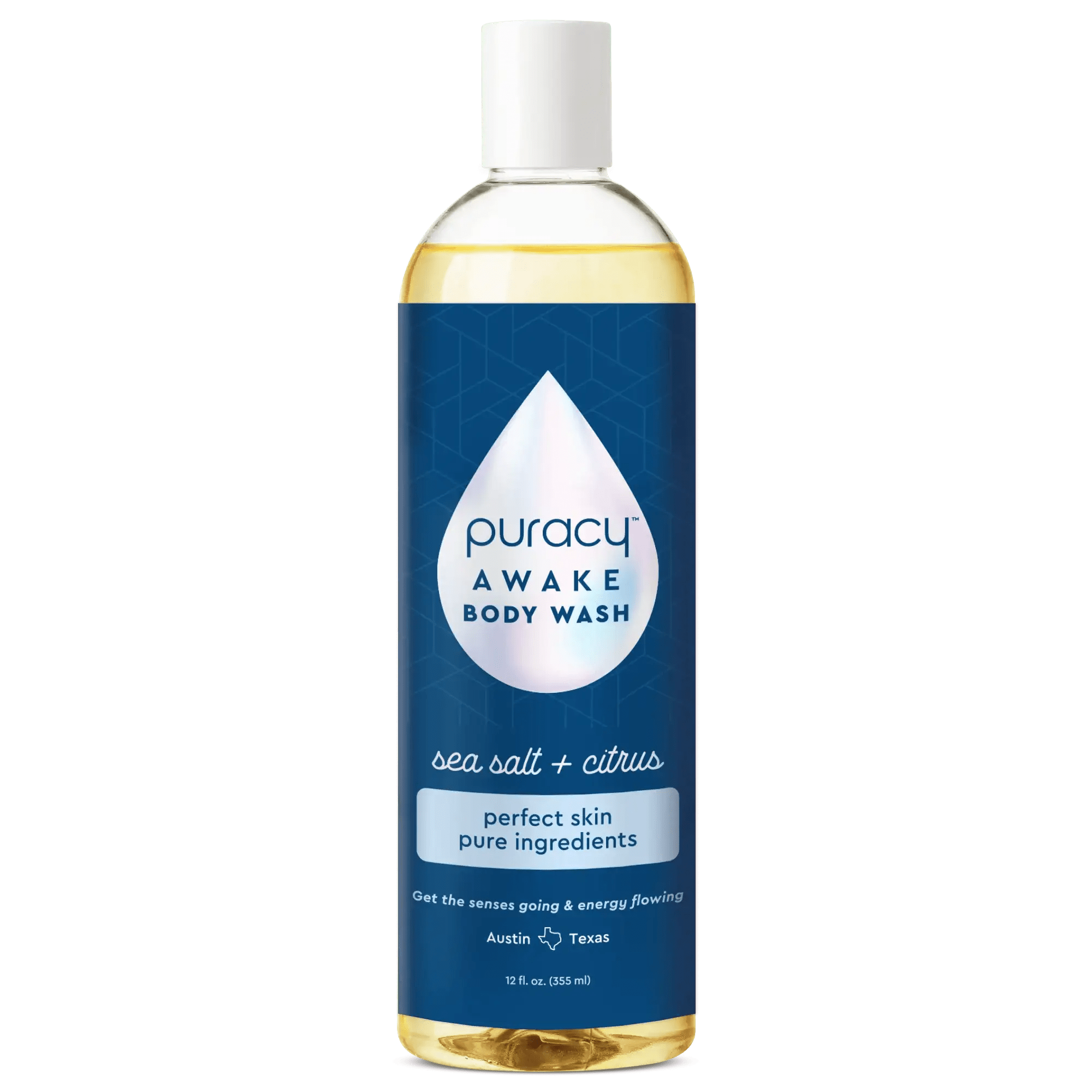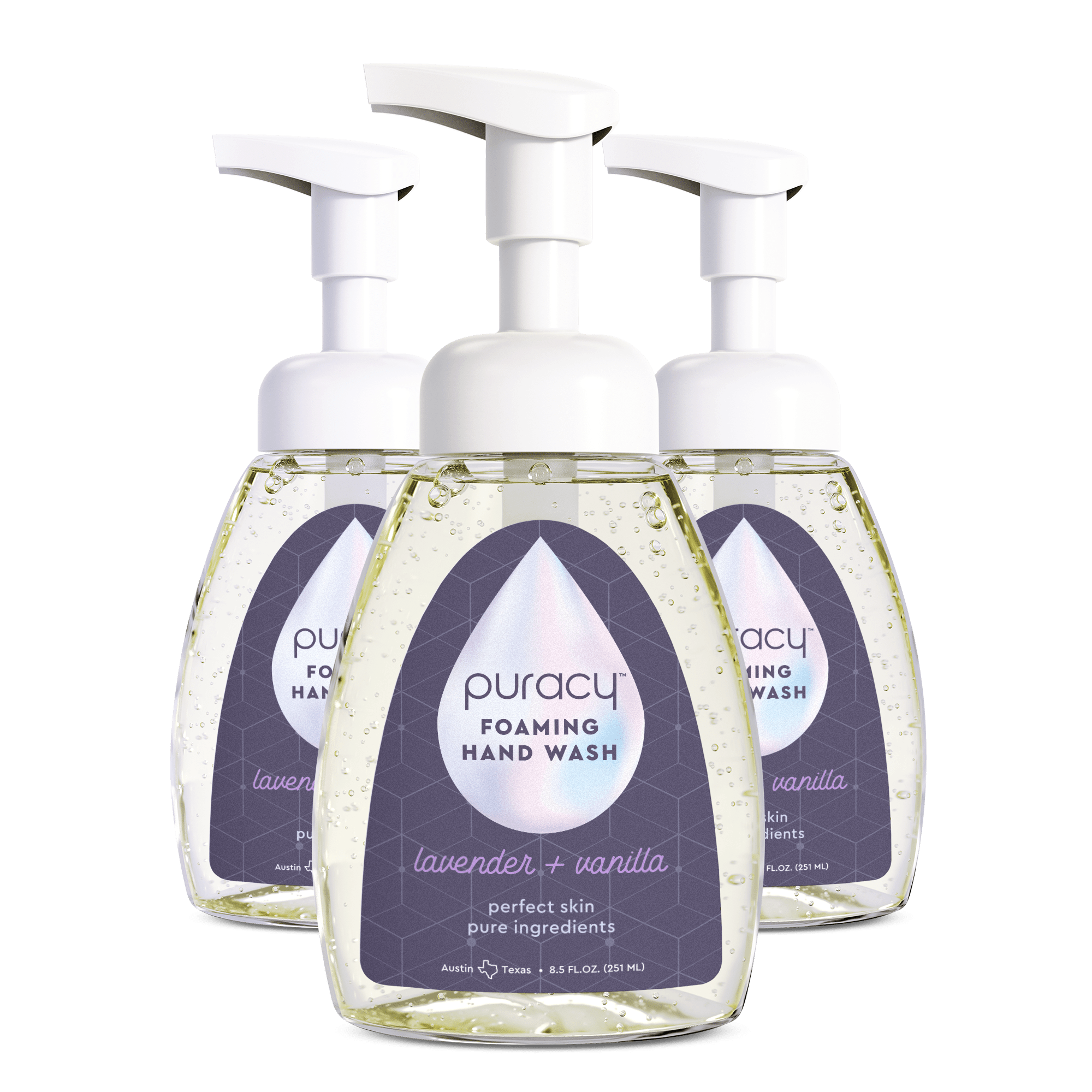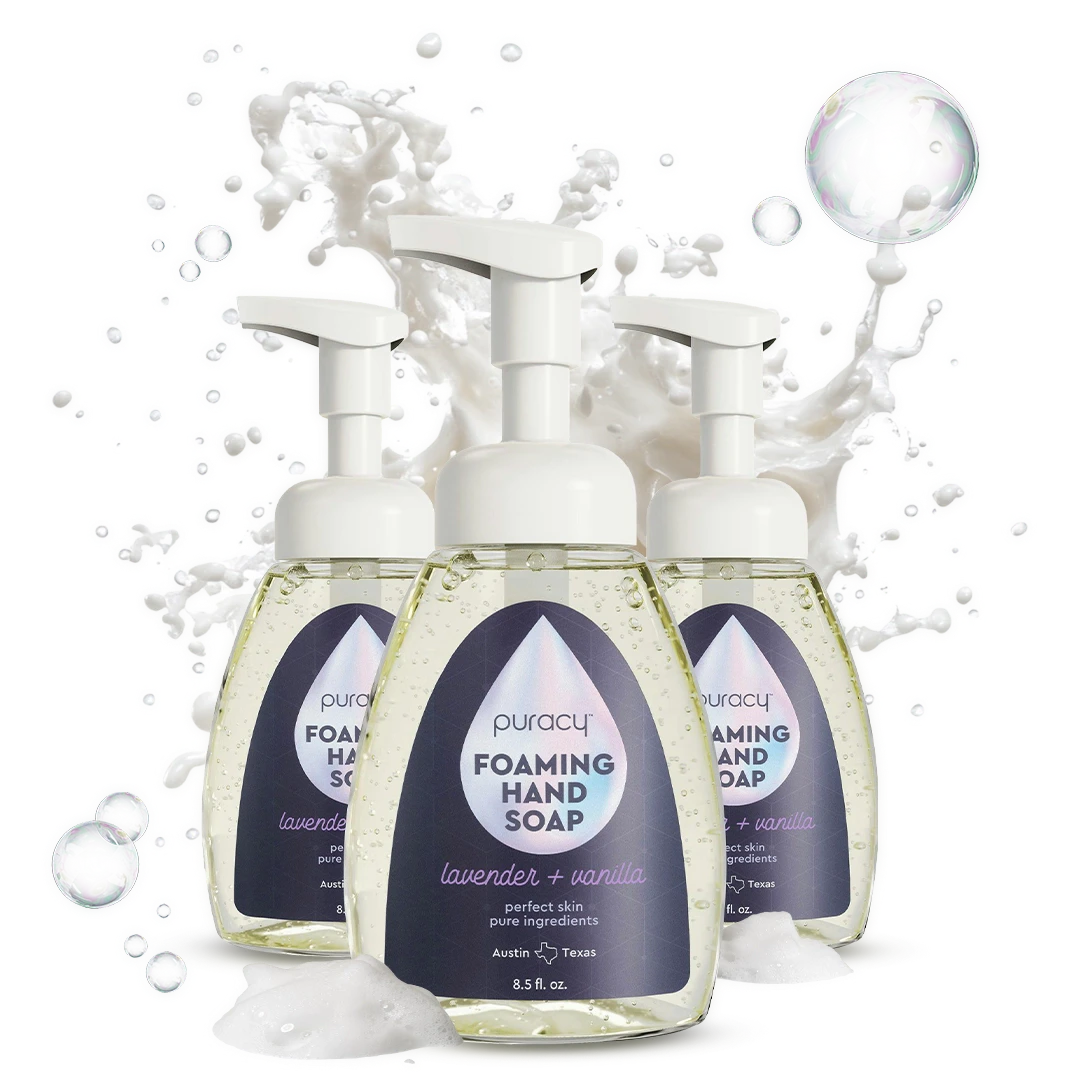
A Guide to Synthetic and Natural Fragrances
When it comes to fragrance, should you always opt for natural over synthetic? At Puracy, we use natural fragrances in our products using only natural ingredients harvested from sustainably grown plants. Curious to know more? Learn more about the complex differences between natural and synthetic fragrances, as well as the importance of knowing their effects in your cleaning products.
What Are Natural Fragrances?

Natural fragrances are created from ingredients found in nature. These products are often viewed as safer and kinder on the skin due to the absence of harmful chemicals. While they can be costlier than their synthetic counterparts, there remains a significant demand for natural products.
The shelf life for these products is averaging one to two years, versus their synthetic counterparts which may last up to 5 years.
What Are Synthetic Fragrances?

Synthetic fragrances contain man-made ingredients and some natural ingredients which are chemically modified. These products can be cheaper because the ingredients are grown in a lab in less time.
The International Fragrance Association (IFA) provides a list of over 3,000 ingredients that are used in the creation of fragrances. IFA members stand by safety operating measures on the use of these ingredients.
Common Applications of Natural and Synthetic Fragrances

Scent is known to play an important role in a person’s mood or enhance a user’s experience. It has been used in mental and spiritual healing processes since ancient civilizations. Scents can affect brain activities and have been scientifically found to affect the mood and physiological aspects of a person.
Aromatherapy

A spa uses aromatherapy to induce a feeling of calmness and relaxation. Aromatic components are also used for the treatment of disorders as an alternative healing method since ancient Egypt. As with other self care routines, it’s important to ensure your scents are natural and gentle on sensitive skin.
Household Cleaning Products

Fragrances can be found in many household cleaning items such as the Puracy laundry detergent, which is developed with sensitive skin in mind. They are also used in surface cleaners, dish soaps, stain removers, and disinfectants.
Personal Care Products

Shampoos, conditioners, body wash, and lotions also have fragrances like mint and citrus, which are sure to wake you up in the morning. There’s a hair care bundle you’ll love — it has the Puracy shampoo, conditioner, dry shampoo, and scalp scrub for your well-deserved long bath over the weekend.
Pet Care Products

Pets can leave a bad odor from poop and pee, which makes fragrances important in pet shampoo, stain remover, and odor removers. The Puracy Pet Shampoo has a watermelon and sea salt scent that your pet will definitely enjoy! Each 355ml bottle is PH-balanced and is fortified with biotin for your furry friend’s healthy skin and coat.
Perfumes

The perfume business alone is a billion-dollar industry. It can contain extracts of leaves and twigs, fruits, wood, and seeds from nature to create musk and aroma that people will recognize. Recently, the natural fragrance industry has grown to embrace sustainable, socially conscious perfumes with cleaner, vegan formulas. Clean perfumes are growing traction in favor of scents that rely on synthetic ingredients.
Baby Care Products

Fragrances can also be found in baby products and because they’re more sensitive, the ingredients must be gentle on the skin with a scent they will enjoy during bathtime. If you’re a new parent wondering about what to look out for in particular, check out our guide to ingredients to avoid in baby products.
Effects of Fragrances on the Hair, Skin, and Nervous System

The most common effect of fragrances on people is on their mood, memory, and emotion. Shampoos can be minty or citrusy because it awakens senses when taking a bath in the morning. When you use it on your hair, it sets the mood for the day and it leaves you feeling fresh. Meanwhile there are cleaning products with fragrances that induce a feeling of calmness for the bedroom. Large-chain hotels even have signature scents that give them a certain personality.
These are possible because scent triggers a part of the brain, which is connected to memories and emotion. It’s the reason why certain smells make you remember vivid things, such as a person or a place you’ve visited. You will also be able to remember what scents make you feel happy, excited, and active. Your sense of smell is controlled by the nervous system and allows you to respond with feelings of happiness or even anxiety.
In certain cases, especially due to hypersensitivity, fragrance can cause headaches or can trigger asthma attacks. It’s best to check all ingredients found in the product you want to buy before checking out!
The Good and Bad of Natural and Synthetic Fragrances

There’s a misconception in the general consumer public that anything labeled “natural” and “organic” is more expensive. There’s some form of truth in there, but it’s not always the case. Here are some things to take into consideration as you do your research.
Production costs

Natural products can be more expensive because the ingredients naturally grow on earth and may take time to grow, cultivate, and harvest. There can even be scarcity in the ingredients involved. In other cases, the ingredients may need to be grown and transported from another country, which adds to the expense of creating the end product. Making sure the communities and employees that source and cultivate these ingredients are paid fairly is also taken into production costs as well.
Synthetic ingredients can be grown in a lab with less time and resources. They can also be produced in big batches, making them a cheaper alternative. However, this often comes at a cost to the environment and the wildlife surrounding these factories.
Environmental Impact

What makes natural products good is they are organically grown and are free of toxic chemicals, which are harmful to the planet. They produce less waste which goes back to the environment. Consequently, synthetic fragrances can leave their own mark on the environment, though a negative one. According to Science Journal, synthetic fragrances found in perfumes, hair sprays, and paint can emit the same amount of chemicals as gas emissions from vehicles.
Effect on the Skin and Body

Natural fragrances may also have a less intense smell but are gentler on the skin and on your body. For example, natural ingredients such as coconut oil and aloe vera are known to positively work and affect your skin versus synthetic fragrances that only contain their scents.
Meanwhile, synthetic fragrances can be hazardous to sensitive skin, triggering allergies, eczema, headaches, and more. Since their effect is airborne, it can also impact people nearby in the same way as second hand smoke.
Respect for Animal Life

Most natural product manufacturers also swear by cruelty-free operations, which means no animals are involved in testing their products. Today, many products make use of a combination of natural and synthetic fragrances. This allows for less chemicals and longer shelf life, but it’s always a safer bet to opt for natural fragrances as the more sustainable choice.
What Is “True” Fragrance Allergy vs Fragrance Sensitivity

Sensitivity to scents can lead to headaches, sneezing, rhinitis, and dizziness, among other things. However, no test is reliable enough to determine allergies caused by fragrances, unlike allergies for substances which can be determined with a simple patch test.
In a journal entry by Emily Senger published in the Natural Library of Medicine, scent-free policies are “unjustified”. Pamela Dalton, a psychologist at the Monell Chemical Senses Center says merely telling people they’re about to smell something off will already put them off despite the odor being non-offensive. The entry encourages scent-reduction policies in places such as hospitals, instead of a total ban.
In a separate study by Jeanne D Johansen, skin allergy from fragrances are higher in women who already have skin problems such as eczema. It also highlights the difficulty in entirely avoiding the problems since even products labeled “fragrance-free” are not entirely rid of allergens.
Are Natural Fragrances Better Than Synthetic?

Given the studies mentioned above, not all manufacturers provide a list of their ingredients. This means, care must still be taken in choosing brands who label their products “organic” or “all-natural.”
Natural fragrances are still more in demand being generally kinder and safer for people and the environment. There are products that use minimal synthetic ingredients to avoid natural ingredients that may be harmful to the skin, such as pollen and other kinds of allergens.
To be sure, steer clear from products with harmful ingredients like sulfates (SLS, SLES, SCS), triclosan, formaldehyde, parabens, phosphates, MEA, DEA, TEA, chlorine, bleach, petrochemicals, animal by-products, allergens, perfumes, dyes, or caustics. Curious to learn more? Check out our guide to potentially harmful chemicals to look out for in your home.
Find Natural Fragrances in all Puracy Products

At Puracy, we list all of its fragrances and ingredients for transparency purposes and it also provides buyers an idea of what each is used for and its effects. We keep this blend of ingredients listed as a singular one for the sole purpose of protecting our signature scents. There are a limited number of aroma producing ingredients from plants, mostly citrus and floral (as seen in our Natural Stain Remover).
To achieve the natural refreshing aromas in our products, we enlist a team of natural perfumers to add depth and range to our aromas. The use of Natural Fragrance is never more than 0.2% by volume in our products and never contains any common allergens. If you’re looking to only use natural fragrances in your home, Puracy is here for all your daily natural cleaning needs.
